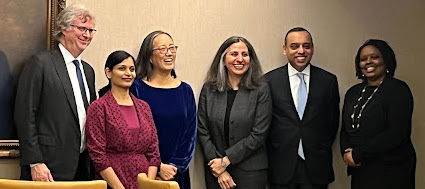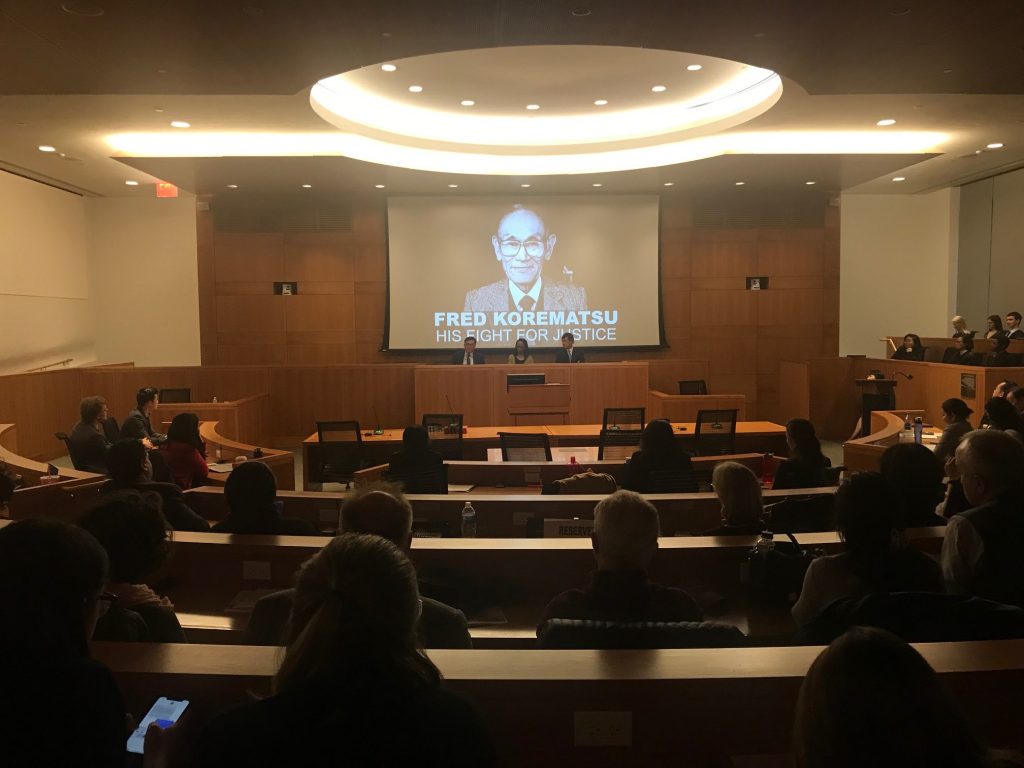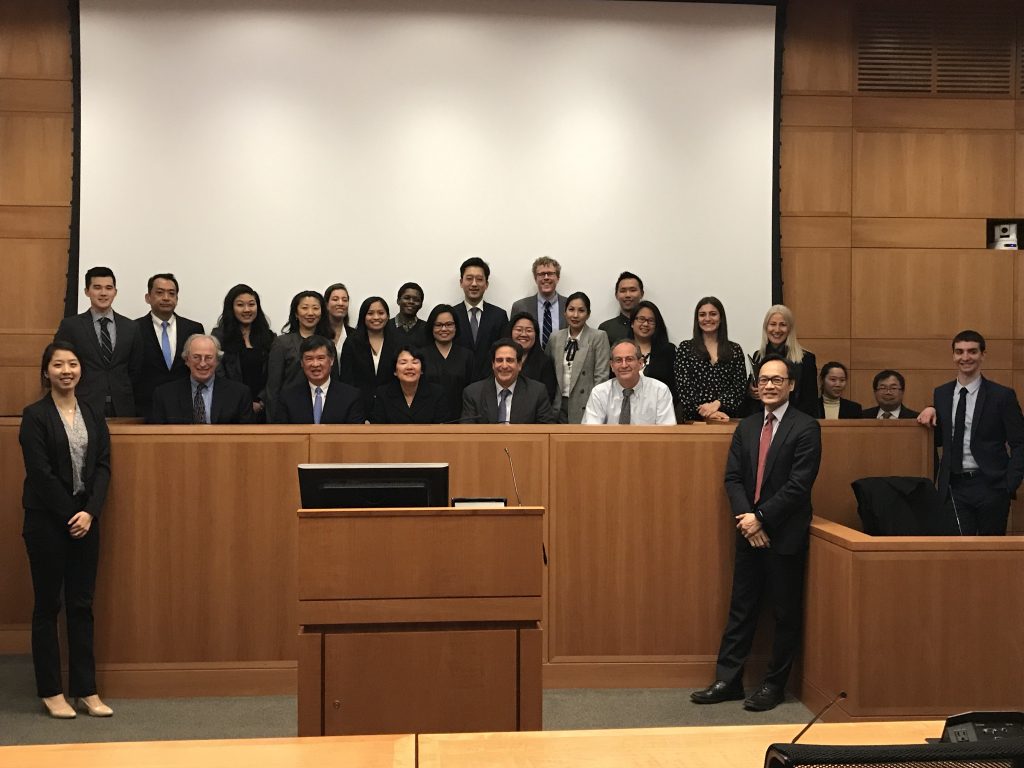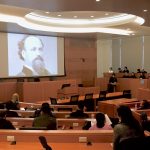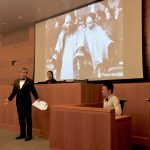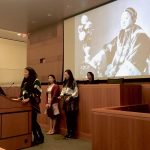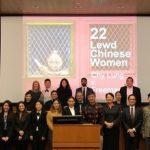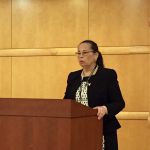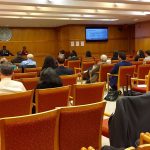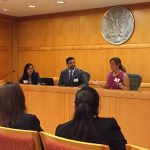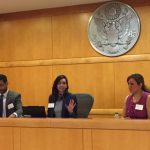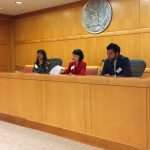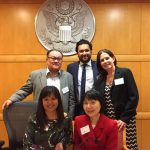On February 3, AABANY co-sponsored the SDNY Chapter of the Federal Bar Association’s third edition of the Talking with Trailblazers series. The series presents conversations with legal professionals who were the first to break representational ceilings in their field. The February 3 edition featured the first Federal judges of Asian descent in the Southern and Eastern Districts of New York. The panelists, all AABANY members, were:
- Hon. Ona T. Wang, the first Asian-American Magistrate Judge in the SDNY.
- Hon. Diane Gujarati (EDNY), the first Indian-American to serve as an Article III judge in New York.
- Hon. Sanket Bulsara (EDNY), the first Indian-American judge within the Second Circuit.
Attendees were welcomed to join both in-person at the offices of Dunnington Bartholow & Miller in midtown Manhattan and on Zoom. All three judges were present in person, surrounded by an audience of lawyers and law students. The moderator was Padmaja Chinta, who is a partner at Chinta & Fratangelo LLP and the SDNY Chapter’s Chief Diversity Officer.
The panelists discussed a variety of subjects, from how they started their careers to the impact of mentorship. The judges had joined the legal industry from unexpected backgrounds. For example, prior to attending law school, Judge Wang had first obtained a Ph.D. in Zoology from Duke University. The judges also discussed the challenges they faced climbing the upper rungs of their careers. Finally, the conversation closed with a reflection on how the judges’ experiences shape their philosophies and practices on the bench.
Following the moderated panel, attendees both in-person and virtual were eager to ask questions. The event was expected to end at 7:00 pm, but due to the number of questions and the liveliness of the discussion, it did not formally end until 7:30 pm. At closing, in-person attendees also took the opportunity to meet the judges and members of the SDNY Chapter of the Federal Bar Association.
Thanks to Judge Wang, Judge Gujarati, and Judge Bulsara for sharing their stories and their insights. Thanks also to the Federal Bar Association’s SDNY Chapter for organizing this series and including AABANY as a co-sponsor.
